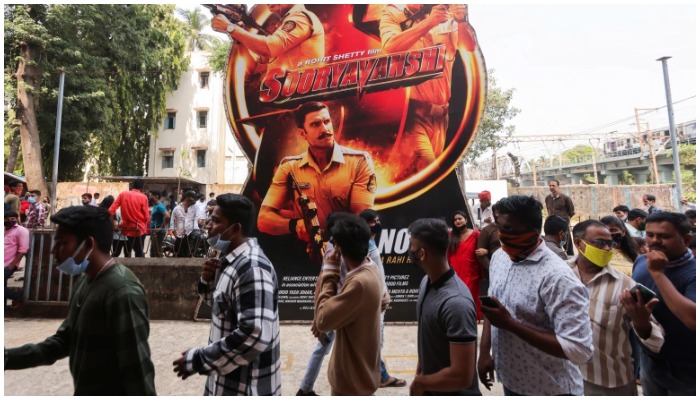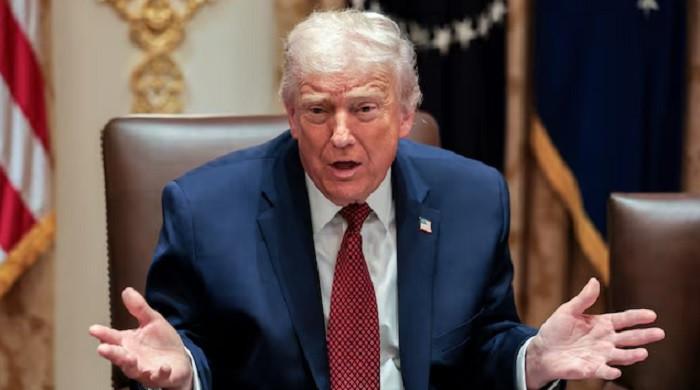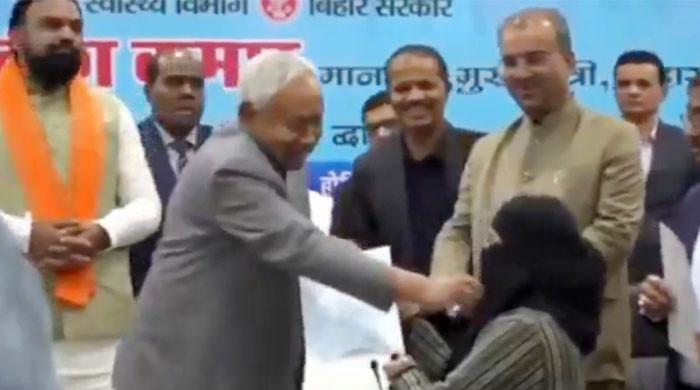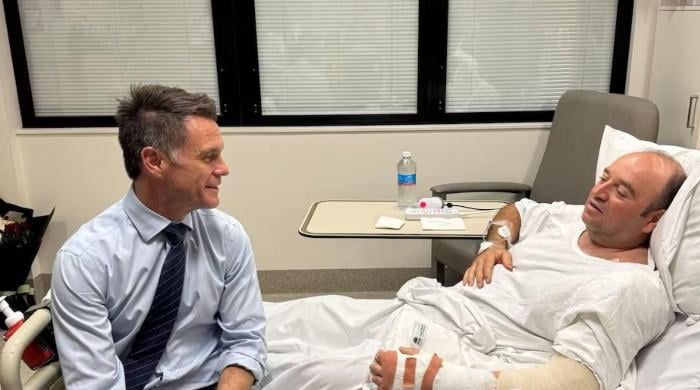Drums, cake, and milk as Indian cinemas bounce back to life
Indian cinemas resume with Bollywood's first big-budget release since the pandemic hit
November 05, 2021

- Indian film fans beat drums, dance and eat cake to celebrate the resumption of cinemas.
- Cinemas shuttered in March 2020 under a strict lockdown when COVID-19 first hit the country.
- India’s media and entertainment earnings slumped by a quarter to $18.7 billion last year.
MUMBAI: Indian film fans beat drums, danced, and distributed cake to celebrate the resumption of cinemas with Bollywood's first big-budget release since the pandemic hit.
Cinemas shuttered in March 2020 under a strict lockdown when COVID-19 first hit the country, and then enjoyed a brief reprieve before closing after a massive virus surge in April.
India’s media and entertainment earnings slumped by a quarter to $18.7 billion last year, according to accounting firm EY. Dozens of small cinemas went bust and multiplex chains suffered major losses.
The industry is hoping for a rebound with theatres back in business across the country, most recently in Mumbai, capital of Bollywood, the world’s most prolific film industry.
First out of the blocks on Friday, just in time for the Diwali festival weekend — traditionally a time for blockbuster releases — was "Sooryavanshi", the first marquee Bollywood film to be released on the big screen in 18 months.
Fans danced and chanted the name of the action caper’s star Akshay Kumar — battling a terrorist sleeper cell in Mumbai — with one even baking a chocolate cake embossed with the name of the movie.
"We have been waiting for almost one and half years for a big Bollywood movie to be released," said Sikander, one fan eager to watch the film.
"You can see the crowds chock-a-block here. I don’t remember the last time I have seen such a huge crowd of moviegoers," he told AFP.
"This film is very crucial for the film industry," Rajender Singh Jyala, chief programming officer for the country’s second-largest cinema chain INOX, told AFP.
"The buzz is also very good."
Rooftop drive-in
India’s largest multiplex operator PVR is soon set to open an open-air, rooftop drive-in cinema — pegged as the country’s first — atop a Mumbai shopping mall.
The drive-in operated by Jio — owned by Asia’s richest man Mukesh Ambani — has space for 290 cars and "boasts of the biggest cinema screen in town," the firm said.
Creating excitement further south was a film not from the studios of Bollywood but a Tamil-language production, "Annaatthe", featuring local superstar Rajinikanth.
Hindi-language Bollywood is India’s biggest film industry but in normal times the vast country also produces hundreds of films in its 21 other official languages every year.
Before it opened on Thursday, fans in Tamil Nadu poured milk on posters of Rajinikanth’s face in respect for the actor, who inspires almost god-like adulation in the state.
Massive backlog
Film trade analyst Komal Nahta said there was a "massive backlog" of films worth an estimated 50 billion rupees ($668 million) in production costs from films made during the pandemic but not released.
"We will have at least one major film released every week," he added.
Christmas Eve sees the opening of Reliance Entertainment’s "83", a sports biopic charting India’s first Cricket World Cup win, also delayed by more than a year.
In a country where going to the movies has long been a central fixture of cultural life, the pandemic’s theatre closures prompted a surge in subscriptions to streaming platforms.
US giants Netflix, Amazon’s Prime Video and Disney’s Hotstar have rushed to tap into the growth in online audiences as smartphone adoption rises.
Some big-budget Indian films were released straight onto streaming platforms, such as comedy-drama "Gulabo Sitabo" starring megastar Amitabh Bachchan, which was released on Amazon in May 2020.
But Jyala of INOX said cinema owners were unfazed by the competition.
"People are coming back to theatres... and there are several more big titles in the pipeline," he added.









